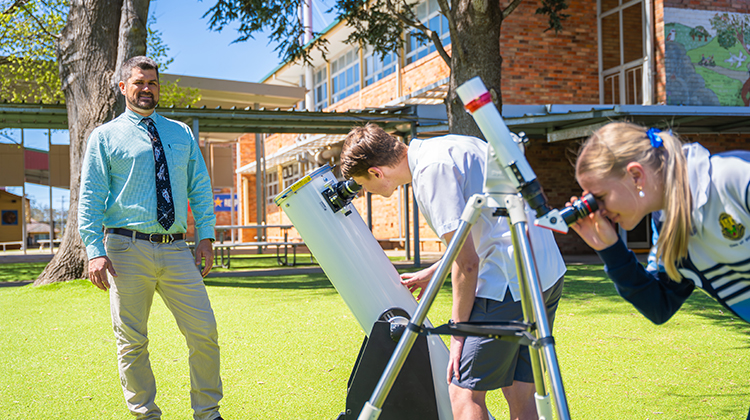Matt Dodds Boosts Girls in STEM Subjects and Participation Overall

Physics and Biology teacher, Mr Matt Dodds from Glen Innes High School in NSW has received the Prime Minister’s Prize for Excellence in Science Teaching in Secondary Schools in the 2025 Prime Minister’s Prizes for Science.
Dodds takes a real-life approach to teach abstract concepts in practical ways and inspires students to pursue STEM careers through immersive learning experiences.
He has also significantly increased the number of female students studying Physics from a ten-year average of 1.1 students to currently having 9 girls studying Physics in Year 12. Female students currently fill the majority of the top student rankings in Physics at the school.
Dodds has increased the overall number of students studying Physics from a 10-year average of 5.5 students to 14 students.
“I tell students that studying science - and particularly physics - teaches you how to think critically and can open many career pathways, including engineering, dentistry, medicine, rocketry and even economics.”
He created the annual two-day Astronomy and Astrophysics Depth Study Program held at Siding Spring Observatory in Coonabarabran (NSW), which is now in its seventh year and has been attended by over 280 students from regional schools. His innovative methods have significantly increased the number of female students studying Physics at his school and the number of students pursuing higher education in STEM.
His students design and build solid fuel rockets using computer-aided design software and run simulations to estimate the rocket’s potential height. He developed a lesson for students to use data from NASA’s Kepler Telescope to calculate the mass of stars that has been adopted by other Physics teachers around the globe.
In his ‘Build a Teaching Tool’ assessment, Year 12 students created a physical teaching aid to explain a syllabus outcome and record a YouTube video using what they have created. This made students the educators and empowered them to explain STEM concepts.
Mr Dodds is enthusiastic about teaching astronomy and the relationship with Aboriginal and Torres Strait Islander culture, such as the Emu in the Sky.
He uses a solar telescope to introduce junior students to the sun and teach them about the constellations and the cultural significance of the Emu in the Sky. Dodds also organises lunch days at the local showground to celebrate his students’ achievements with parents and family.
Mr Dodds also supports teachers in his school and across the country by sharing resources designed to excite students in STEM.
“I've always been curious about how the universe works on a deeper level, as it gives us an appreciation of the world around us.
“I'm passionate about teaching in regional areas of Australia. Just because we're in rural Australia, it doesn't mean that students shouldn’t have access to high-quality STEM experiences.
“I always want to learn more science and share that with my students. It's important for teachers to embrace the ‘lifelong learner’ mentality, embrace new technology and learn new discoveries in science. Students are inspired when they see their teacher also has a deep passion for the subject matter.
“I'm humbled to receive the Prime Minister's Prize for Excellence in Science Teaching in Secondary Schools. It's great recognition for the science teaching that happens not just at Glen Innes High School, but around Australia in regional and remote areas.”